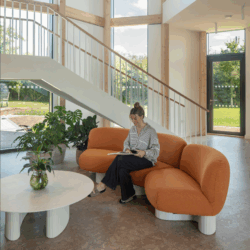October 29, 2025
People are now more interested in job rewards now rather than at some point in the future
 Employees place far greater importance on being respected, fairly compensated and other job rewards now than on their future career prospects, according to new international research. The Work Remastered 2025 report from United Culture, which surveyed 1,500 employees in the UK, US and Western Europe, found that respect topped the list of workplace priorities, cited by 36 percent of respondents. This rose to 43 percent among US workers and 45 percent among those aged 18 to 24. Job security followed at 31 percent—rising to 40 percent in the UK—while fair pay ranked third at 29 percent. (more…)
Employees place far greater importance on being respected, fairly compensated and other job rewards now than on their future career prospects, according to new international research. The Work Remastered 2025 report from United Culture, which surveyed 1,500 employees in the UK, US and Western Europe, found that respect topped the list of workplace priorities, cited by 36 percent of respondents. This rose to 43 percent among US workers and 45 percent among those aged 18 to 24. Job security followed at 31 percent—rising to 40 percent in the UK—while fair pay ranked third at 29 percent. (more…)






































